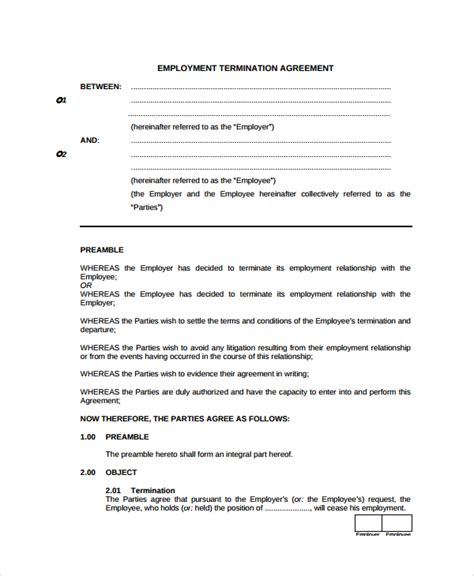Understanding Termination From Employment

Introduction
Termination from employment is a difficult and often emotional experience. It can happen for a variety of reasons, including poor performance, misconduct, or restructuring within a company. Regardless of the reason, it is important to understand the process of termination and your rights as an employee.
Reasons for Termination
Poor Performance
Employers may terminate an employee for poor performance if the employee is not meeting job expectations or company standards. This can include things like missing deadlines, failing to meet sales targets, or making frequent mistakes.
Misconduct
Misconduct is another reason for termination. This can include things like theft, harassment, or violating company policies. Employers may also terminate an employee for poor attendance or insubordination.
Restructuring
Companies may also terminate employees as a result of restructuring or downsizing. This can happen when a company merges with another company, experiences financial difficulties, or decides to change its business strategy.
Types of Termination
Termination with Cause
Termination with cause is when an employee is terminated for a specific reason, such as poor performance or misconduct. In this case, the employer must have evidence to support the termination. If an employee is terminated with cause, they may not be entitled to severance pay or other benefits.
Termination without Cause
Termination without cause is when an employee is terminated without a specific reason. In this case, the employer may be required to provide the employee with notice of termination or pay in lieu of notice. The amount of notice or pay will depend on the employee’s length of service and other factors.
Your Rights as an Employee
Notice of Termination
Employers are required to provide notice of termination to employees who are being terminated without cause. The amount of notice will depend on the employee’s length of service and other factors. If an employee is terminated with cause, they may not be entitled to notice.
Severance Pay
Employees who are terminated without cause may be entitled to severance pay. The amount of severance pay will depend on the employee’s length of service and other factors. Employees who are terminated with cause may not be entitled to severance pay.
Unemployment Benefits
Employees who are terminated without cause may be eligible for unemployment benefits. These benefits are intended to provide temporary financial assistance to employees who are unemployed through no fault of their own.
What to Do if You Are Terminated
Take Time to Process
Termination can be a traumatic experience, so it’s important to take time to process your emotions and thoughts. Consider talking to a therapist or counselor if you are struggling to cope.
Review Your Rights
Review your employment contract and company policies to understand your rights as an employee. If you believe your termination was unfair, you may want to consider speaking with an employment lawyer.
Update Your Resume
Start updating your resume and looking for new job opportunities. You may also want to consider reaching out to your network for job leads or recommendations.
FAQs
What is the difference between termination with cause and termination without cause?
Termination with cause is when an employee is terminated for a specific reason, such as poor performance or misconduct. Termination without cause is when an employee is terminated without a specific reason.
Am I entitled to notice of termination?
If you are being terminated without cause, your employer is required to provide you with notice of termination or pay in lieu of notice. If you are being terminated with cause, you may not be entitled to notice.
Am I entitled to severance pay?
If you are being terminated without cause, you may be entitled to severance pay. The amount of severance pay will depend on your length of service and other factors. If you are being terminated with cause, you may not be entitled to severance pay.
